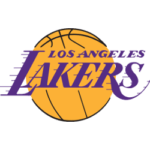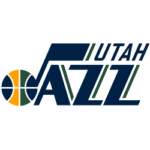
Hartford Whalers Primary Logo 1993 - 1997
Professional sports franchises relocate all of the time. It’s a fact of life, no matter the game. The Carolina Hurricanes used to be the Hartford Whalers. The Texas Rangers were the Washington Senators. The Tennessee Titans began as the Houston Oilers.
In the NBA, the franchise's movement is perhaps the most rampant of any of the four major sports. From its berth as the Basketball Association of America in 1946-47, just two clubs - the New York Knicks and Boston Celtics - have stayed the course as perennial NBA best bets.
Some teams have undergone complete identity changes. The Oklahoma City Thunder were once the Seattle SuperSonics. Long ago, the Los Angeles Clippers began life as the Buffalo Braves.
The Warriors' nickname was maintained when the club arrived in Golden State from Philadelphia. The New Orleans Pelicans initially kept the Hornets nickname after departing Charlotte, but when a new team was christened for Charlotte, they became the Hornet,s and the Pelicans landed as the new team name and logo in the Big Easy.
Sometimes, Keeping Old Name Works
Some franchises shift and keep the nickname, and it makes perfect sense. The San Diego Rockets became the Houston Rockets, and in the home of NASA, this was a logical handle for the club. The Fort Wayne Pistons becoming the Detroit Pistons required no change in nickname when relocating to the U.S. automotive capital. Who doesn’t wish that they’d opted to maintain the Pistons man logo, though?

Then there are those clubs that opt to keep the old handle and incorporate it into the new team’s logo, even when, on the surface, it makes no sense whatsoever. The Los Angeles Lakers? When was the last time you stumbled across a lake in LA, unless you’re counting Rikki Lake?
The Utah Jazz? Okay, name a few Jazz hot spots in Utah?
So, why didn’t these teams opt for new names and logos upon relocating to new cities completely bereft of connections to the old handle?
Let’s look at that.
The Los Angeles Lakers

Los Angeles Lakers Primary Logo 2002 - Present
The move of the once-mighty Lakers from Minneapolis to Los Angeles was confirmed on April 28, 1960. It culminated in a complete relocation of the NBA’s entire Western Conference. Previously, Fort Wayne had moved to Detroit, Milwaukee shifted to St. Louis, and Rochester re-homed in Cincinnati.
If you’re keeping score at home, today, St. Louis is the Atlanta Hawks and Cincinnati is the Sacramento Kings.
In Minneapolis, led by George Mikan, the league’s first superstar, the Lakers were five-time NBA champions by 1954. However, after Mikan's retirement, things began to decline. The team struggled to locate facilities worthy of a major pro franchise. The team’s home stadium shuttled between the Minneapolis Auditorium, Minneapolis Armory, and Saint Paul Auditorium, and on occasion even to out-of-town facilities. The constant moving made it difficult to generate a fan base.
“I wanted to stay in Minneapolis, but could find no way of making it a financially sound investment,” Lakers owner Bob Short told the Minneapolis Star-Tribune upon announcing the move to LA.
“I’m delighted that Los Angeles is our solution. I’m certain our creditors will be happy with the shift, too.”
Keeping the Lakers name was done out of the tradition of success that the club generated in Minneapolis by what was the league’s first super team. It’s hard to argue that the Lakers haven’t maintained that tradition in LA. They also followed the lead of baseball’s Dodgers, whose ownership group didn’t change the team name when leaving Brooklyn in 1957.
The Utah Jazz

Utah Jazz Primary Logo 2016 - Present
When the move from New Orleans to Utah was originally announced in the spring of 1979, team majority owner Sam Battistone suggested that a new nickname would be chosen, though none had been selected. Oddly enough, Saints was proposed in some circles. That’s also the nickname of the New Orleans NFL team, so perhaps Battistone thought that choice would be rubbing salt in the wounds of New Orleans NBA fans.
Another oddity - Elgin Baylor, who moved from Minneapolis to LA as a Lakers player, was the last coach of the New Orleans Jazz. However, he didn’t relocate to Utah. He was fired at the end of the 1978-79 season.
Perhaps because they spent the summer of 1979 embroiled in legal battles with the city of New Orleans and the Superdome, ownership never got around to changing the name, opting instead to maintain the continuity of the Jazz, despite it not fitting the locale.
Hey, you know what would be a suitable nickname for a team located in Salt Lake City?
The Lakers.
___
Sports Logo History is a vibrant community of sports logo enthusiasts who share a deep appreciation for the captivating histories behind each team's logo. We take pleasure in exploring the evolution of primary logos, alternate logos, and wordmark logos from renowned leagues such as the NFL, NBA, MLB, MLS, NHL, Premier League, WNBA, CFL, NCAA, UFL, ABA, USFL, AAF, and XFL. Immerse yourself in the intricate details and stories behind these iconic symbols that represent the essence of each team.
In the enthralling realm of sports, the battle of logos among different leagues unfolds as a captivating and ongoing spectacle. Step into the world of Sports Logo History, where we showcase the relentless pursuit of distinction by leagues such as the NFL, NBA, MLB, Premier League, and countless others. Witness the captivating journey as each league strives to create logos that not only capture the essence of their sport but also resonate deeply with fans.
Immerse yourself in the comprehensive sports history provided by Sports Team History, our esteemed partner site, where you can discover the triumphs, challenges, and defining moments that have shaped the legacies of professional sports teams. Stay up to date with the latest sports news through Sports News History, a platform delivering 24/7 coverage of highlights, player interviews, and game analyses. Additionally, express your unwavering support for your favorite teams by exploring Sports Store History, the premier sports team marketplace offering a vast selection of jerseys, memorabilia, and collectibles. Join our community today and celebrate the rich history, iconic logos, and passion of sports.

